When it comes to choosing the best countertop material for a kitchen remodeling project, quartz and granite countertops emerge as the most preferred choice among architects, builders, and homeowners. It is the visual and functional characteristics of both these materials that make them an excellent choice for countertops and other architectural applications.
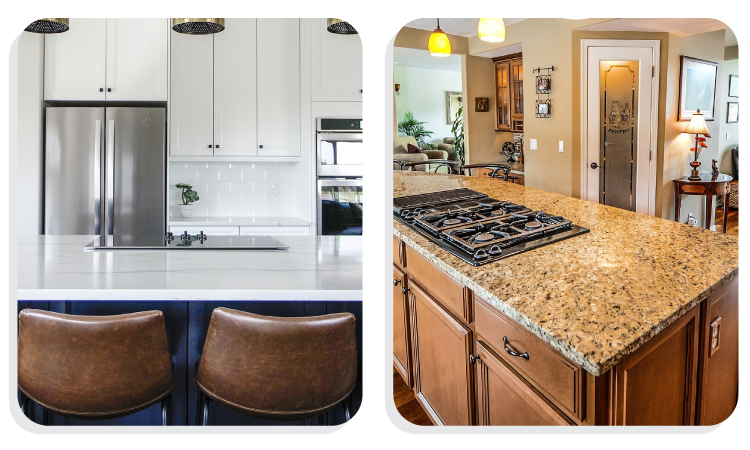
This post intends to highlight the geology of granite and quartz, their origin, physical characteristics, sturdiness, and environmental sustainability. What constitutes the varying colors of granite? What roots cracks in the stone? Why are some minerals so big? Which is more durable quartz or granite?
Granite and Its Formation
Granite refers to an igneous rock composed of feldspar, quartz, feldspar, amphiboles, micas, and a combination of extra trace minerals. The color and texture of granite countertops depend on the presence of these minerals and their variation in profusion and change. Correctly, granite is a plutonic rock that contains nearly 10 to 50% quartz and 65 to 90% total feldspar.
Being an intrusive igneous rock, the granite came into shape when the molten rock cooled gradually. In general, the gentler the molten rock chilled, the bigger its mineral rocks with K-Feldspar megacrysts created in special scenarios bigger than 5cm.

The natural stone is buried below large amounts of rock and sediment required to produce sufficient temperature to melt rock. The movement of granite from high pressure and temperature to atmospheric temperature and pressure caused the stone granite to swell and crack. This, along with seasonal differences in temperature resulted in a debilitated and less wanted granite for use in countertops.
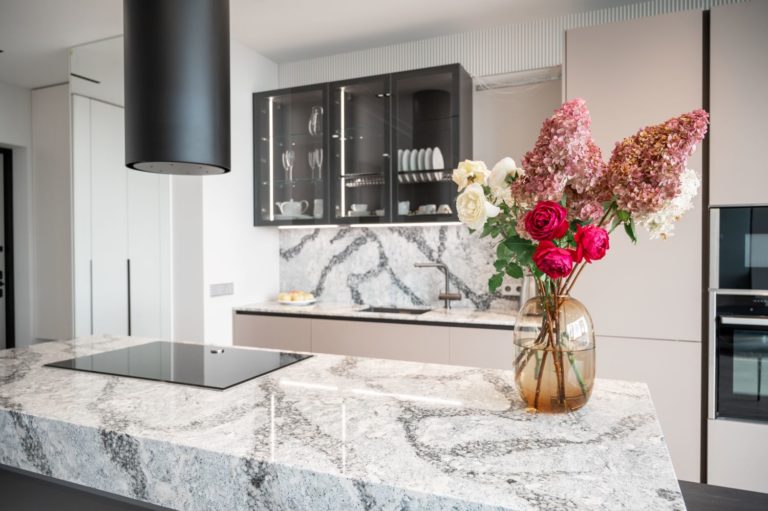
Quartz and Its Formation
A quartz countertop contains quartz arenite, which is a rock with at least 90% quartz. The natural setting of quartz is guided by mineral strength and dissimilar weathering rates. Since weaker minerals weather and corrode comparatively faster than quartz, quartz emerges as a leading mineral in superiorly weathered sediment systems distant from sediment sources.
However, it is also true that quartz countertops are basically made artificially. Though they are made up of 90% quartz, the remaining part is made up of polymers, resins, and different types of pigments. This results in a highly durable man-made rock with zero pores or cracks. The resultant pigment is treated to enable coloration that is originally found in quartz arenite.
Granite vs. Quartz Countertops/Worktops
Below is a straightforward comparison of granite and quartz countertops reagarding their physical, chemical, and geological properties.
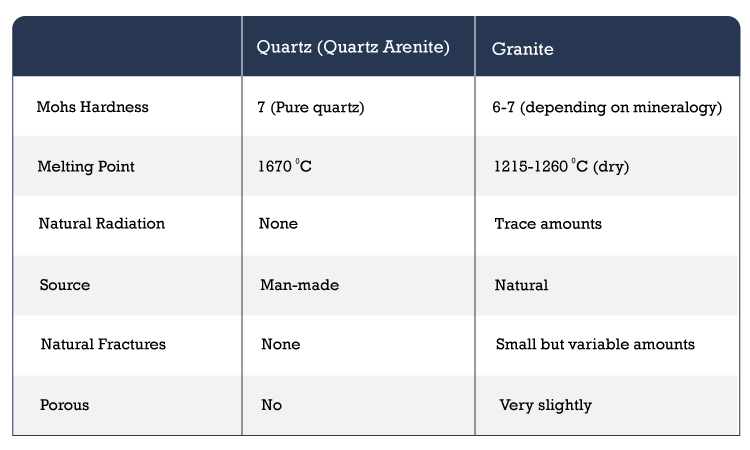
Radon from Granite – Is it worth the concern?
Another major factor when considering granite and quartz countertops is radiation. Unfortunately, there is a lot of misleading or threatening information available online. Radon is a radioactive gas, naturally discovered in granite. This is the end result of the decaying of radium to radon.
The natural stone can have parts per billion of radium. It means that it has a very small amount of radioactive material to fall off and release radon. According to various research reports, this is minimal and accepted in typical granite structures.
Although quartz countertops will have less to zero radon, it does not prohibit granite as a “less safe” option in kitchen countertops. Considering the radiation typically faced through flying, walking around a city, and living regularly, it is not considerable enough to depress the use of granite countertops in the construction world.
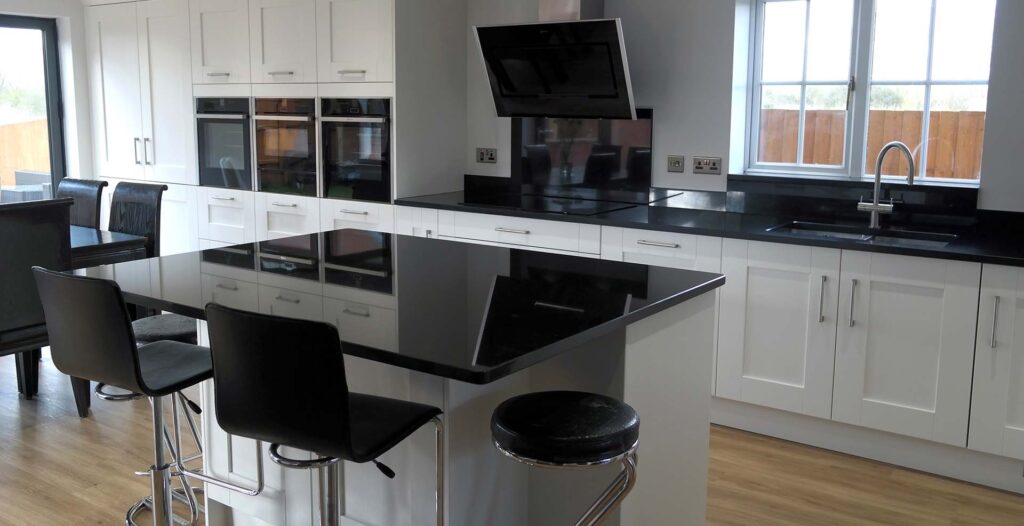

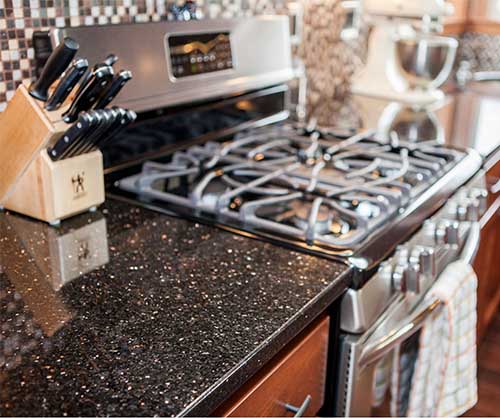
Which is better?
In most cases, people take the price difference into consideration while choosing between quartz and granite worktops. Another most important point is to choose between a man-made and natural stone.
The granite looks better from quarts due to its varied color variation and mineral defects. Being a natural product, granite countertops, particularly black granite countertops emerge as the most powerful kitchen décor element among households worldwide.
On the other hand, quartz countertops are easier to clean and don’t need heavy maintenance. If you want to design a countertop that you can just do and forget, quartz is the choice you should go with.
